Humans love sweet things. Even before we started refining sugar, we sought out foods with sweet tastes. Growing up, I remember my grandmother trying to find ways to get me to eat vegetables. Often, she would sprinkle sugar on them to make them "taste better". For example, she would take a few leaves of iceburg lettuce, sprinkle some white sugar on them and roll them up like a wrap. A sugar/lettuce wrap. She would also put brown sugar in and on everything from coleslaw, to turnip, to toast, dips, sauces, and meats. So I began doing the same at home, because, well, it WAS GOOD! I remember discovering that one of my favourite snacks, well into adulthood, was a peanut butter and sugar sandwich on white bread, or toast with brown sugar and cinnamon. It all seemed harmless, right?
Sugar is a simple carbohydrate that occurs naturally in foods such as grains, beans, vegetables, and fruit. However, refined table sugar, also called sucrose, is very different. Extracted from either sugar cane or beets, it lacks vitamins, minerals and fiber, and thus requires extra effort from the body to digest. The body must deplete its own store of minerals and enzymes to absorb sucrose properly. Therefore, instead of providing the body with nutrition, it creates deficiency. It quickly enters into the bloodstream and wreaks havoc on the blood sugar level, first pushing it sky-high—causing excitability, nervous tension and hyperactivity—and then dropping it extremely low—causing fatigue, depression, weariness and exhaustion. Does this sound familiar?
Sugar is a simple carbohydrate that occurs naturally in foods such as grains, beans, vegetables, and fruit. However, refined table sugar, also called sucrose, is very different. Extracted from either sugar cane or beets, it lacks vitamins, minerals and fiber, and thus requires extra effort from the body to digest. The body must deplete its own store of minerals and enzymes to absorb sucrose properly. Therefore, instead of providing the body with nutrition, it creates deficiency. It quickly enters into the bloodstream and wreaks havoc on the blood sugar level, first pushing it sky-high—causing excitability, nervous tension and hyperactivity—and then dropping it extremely low—causing fatigue, depression, weariness and exhaustion. Does this sound familiar?
Sugar Destroys Your Health in Many Ways
The United States is the largest consumer of sweeteners and one of the largest global sugar importers. It started in 1689 when the first sugar refinery was built in New York City. Colonists soon began to sweeten their breakfast porridge with refined sugar, and within 10 years individual consumption had reached 4 pounds a year. The average American now consumes more than 100 pounds of sugar and sweeteners per year. In contrast, Americans consume an average of about 8 pounds of broccoli. The USDA recommends we get no more than 10 teaspoons per day (which is still A LOT), yet most Americans eat about 30 teaspoons per day—that’s three times the recommended daily value.
While most of us know that sugar isn’t good for you, many people may not be aware of the ways that sugar can ruin human health. There is much scientific evidence that demonstrates how sugar is linked to many health issues, and prolonged use can contribute to severe neurological diseases.
According to Nancy Appleton, Ph.D., here is a list of just 30 (out of 146) ways sugar can negatively impact your health:
While most of us know that sugar isn’t good for you, many people may not be aware of the ways that sugar can ruin human health. There is much scientific evidence that demonstrates how sugar is linked to many health issues, and prolonged use can contribute to severe neurological diseases.
According to Nancy Appleton, Ph.D., here is a list of just 30 (out of 146) ways sugar can negatively impact your health:
| 1. suppress the immune system. 2. upset the mineral relationships in the body. 3. cause hyperactivity, anxiety, difficulty concentrating, and crankiness in children. 4. produce a significant rise in triglycerides. 5. contributes to the reduction in defense against bacterial infection (infectious diseases). 6. cause a loss of tissue elasticity and function, the more sugar you eat the more elasticity and function you lose. 7. reduces high density lipoproteins. 8. leads to chromium deficiency. 9. lead to cancer of the ovaries. 10. increase fasting levels of glucose. 11. cause copper deficiency. 12. interfere with absorption of calcium and magnesium. 13. can weaken eyesight. 14. raise the level of a neurotransmitters: dopamine, serotonin, and norepinephrine, which creates addiction | 15. can cause hypoglycemia. 16. can produce an acidic digestive tract. 17. can cause a rapid rise of adrenaline levels in children. 18. Sugar malabsorption is frequent in patients with functional bowel disease. 19. can cause premature aging. 20. can lead to alcoholism. 21. can cause tooth decay. 22. contributes to obesity 23. High intake of sugar increases the risk of Crohn's disease, and ulcerative colitis. 24. can cause changes frequently found in person with gastric or duodenal ulcers. 25. can cause arthritis. 26. Sugar can cause asthma. 27. Sugar greatly assists the uncontrolled growth of Candida Albicans (yeast infections). 28. can cause gallstones. 29. can cause heart disease. 30. can cause appendicitis |
Sugar and Your Brain
Consuming sugar can be particularly damaging to your brain. According to neuroscientist, Dr. Russell Blaylock, there is new evidence to illustrate that high levels of sugar in your diet can damage your brain. He reports that in a recent study of 980 elderly people followed for four years, those with the highest intake of calories from sugars had a 50 percent increased incidence of dementia. Dr. Blaylock suggests that eating a lot of sweets and carbohydrates can increase your risk of dementia for three scientific reasons:
Reason 1: Sugar dramatically increases your metabolism, and high rates of metabolism become a major source of free radical production. (Free radicals damage your cells and impair their function.)
Reason 2: High levels of sugar in your body cause the sugar to react with various critical proteins, including enzymes that repair DNA damage caused by free radicals.
Reason 3: Continued high sugar consumption prevents your cells from absorbing the sugar needed to produce energy — a condition called insulin resistance. Another recent study found a high incidence of insulin resistance in those with Alzheimer's dementia. The worst form of sugar is high Fructose corn syrup.
Reason 1: Sugar dramatically increases your metabolism, and high rates of metabolism become a major source of free radical production. (Free radicals damage your cells and impair their function.)
Reason 2: High levels of sugar in your body cause the sugar to react with various critical proteins, including enzymes that repair DNA damage caused by free radicals.
Reason 3: Continued high sugar consumption prevents your cells from absorbing the sugar needed to produce energy — a condition called insulin resistance. Another recent study found a high incidence of insulin resistance in those with Alzheimer's dementia. The worst form of sugar is high Fructose corn syrup.
Two Reasons Sugar Qualifies as an Addictive Substance:
1. Eating even a small amount creates a desire for more
2. Suddenly quitting can cause withdrawl symptoms such as headaches, mood swings, cravings, and fatigue.
Sugar Addiction is a Real Thing
Did you know that sugar is eight times as addictive as cocaine?
According to Dr. Mark Hyman, being addicted to sugar is not an emotional eating disorder. It’s a biological disorder, driven by hormones and neurotransmitters that fuel sugar and carb cravings — leading to uncontrolled overeating and obesity in America. In fact, nearly 70 percent of Americans and 40 percent of kids are overweight.
In one study, Harvard scientists found that a high-sugar milkshake (compared to a low-sugar one) not only spiked blood sugar and insulin and led to sugar cravings, but it actually caused huge changes in brain activity by lighting up the addiction center in the brain. So basically, the more you eat, the more you want.
Some people are aware that their blood sugar levels fluctuate wildly on a sugar-induced high, but they often don’t realize the emotional roller-coaster ride that accompanies this high. We feel happy and energetic for a while and then suddenly, seemingly for no reason, we find ourselves angry or moody.
According to Dr. Mark Hyman, being addicted to sugar is not an emotional eating disorder. It’s a biological disorder, driven by hormones and neurotransmitters that fuel sugar and carb cravings — leading to uncontrolled overeating and obesity in America. In fact, nearly 70 percent of Americans and 40 percent of kids are overweight.
In one study, Harvard scientists found that a high-sugar milkshake (compared to a low-sugar one) not only spiked blood sugar and insulin and led to sugar cravings, but it actually caused huge changes in brain activity by lighting up the addiction center in the brain. So basically, the more you eat, the more you want.
Some people are aware that their blood sugar levels fluctuate wildly on a sugar-induced high, but they often don’t realize the emotional roller-coaster ride that accompanies this high. We feel happy and energetic for a while and then suddenly, seemingly for no reason, we find ourselves angry or moody.
Are You Addicted to Sugar?
Today, sugar is found in many of the obvious foods such as cakes, cookies and candy. But you will also find it in canned vegetables, baby food, cereals, peanut butter, bread, salad dressings, low-fat foods, processed foods, ketchup and tomato sauce, and even frozen fruit. It is often disguised in fancy language, labeled as corn syrup, dextrose, maltose, glucose or fructose.
Even some so-called healthy foods contain sugar. A lemon poppy seed Clif Bar has 21 grams of sugar, or 5 teaspoons. Compare that to a chocolate-glazed cake donut from Dunkin’ Donuts, which has 14 grams of sugar, or 3 teaspoons. You may think your afternoon cup of coffee only has a little sugar, but a 16-ounce Starbucks Frappuccino actually contains 44 grams of sugar, or 10 teaspoons—that’s like eating three donuts! Overconsumption of refined sweets and added sugars found in everyday foods has led to an explosion of hypoglycemia and Type 2 diabetes.
If you find yourself often eating sugar it's not because you're weak-willed, it"s because you have become addicted to a substance that is hidden in your food supply and has been fed to you for years. An addiction is an uncontrollable, compulsive behaviour, despite the health and social consequences. If you suspect you have an addiction to sugar, ask yourself these questions:
1. Do you ever need sugar as a pick-me-up? Perhaps a sweet snack/chocolate/cookie with your mid-morning coffee? A dessert after a meal? A sweet protein or dried fruit bar after your exercise?
2. Do you struggle to walk past a sweet treat without taking just one?
3. Are your favourite foods sweet rather than savoury?
4. If you have a whole day without sugar, do you suffer mood swings, headaches or low energy?
If you answered yes to just one of the above questions, you are most likely addicted to sugar. Sugar is associated with many health problems, including the obvious things like obesity and Type 2 diabetes, but its effect on the human body are far more reaching and destructive than most people are aware of.
Even some so-called healthy foods contain sugar. A lemon poppy seed Clif Bar has 21 grams of sugar, or 5 teaspoons. Compare that to a chocolate-glazed cake donut from Dunkin’ Donuts, which has 14 grams of sugar, or 3 teaspoons. You may think your afternoon cup of coffee only has a little sugar, but a 16-ounce Starbucks Frappuccino actually contains 44 grams of sugar, or 10 teaspoons—that’s like eating three donuts! Overconsumption of refined sweets and added sugars found in everyday foods has led to an explosion of hypoglycemia and Type 2 diabetes.
If you find yourself often eating sugar it's not because you're weak-willed, it"s because you have become addicted to a substance that is hidden in your food supply and has been fed to you for years. An addiction is an uncontrollable, compulsive behaviour, despite the health and social consequences. If you suspect you have an addiction to sugar, ask yourself these questions:
1. Do you ever need sugar as a pick-me-up? Perhaps a sweet snack/chocolate/cookie with your mid-morning coffee? A dessert after a meal? A sweet protein or dried fruit bar after your exercise?
2. Do you struggle to walk past a sweet treat without taking just one?
3. Are your favourite foods sweet rather than savoury?
4. If you have a whole day without sugar, do you suffer mood swings, headaches or low energy?
If you answered yes to just one of the above questions, you are most likely addicted to sugar. Sugar is associated with many health problems, including the obvious things like obesity and Type 2 diabetes, but its effect on the human body are far more reaching and destructive than most people are aware of.
How to Overcome Your Sugar Addition
Sugar and artificial sweeteners can have a negative and detrimental impact on your health, so let’s look at some ways that you can learn to deal with sugar addiction and reduce the amount sugar in your diet.
Here are 12 strategies you can try:
1. Reduce or eliminate caffeine. The ups and downs of heavy caffeine consumption (coffee, energy drinks, some teas) include dehydration and blood sugar swings, and may cause sugar cravings to become more frequent. This is heightened if you add sugar to drinks like coffee or tea.
2. Drink water. Sometimes sweet cravings are a sign of dehydration because your body needs energy. Before you go for carbs or sugar, have a full glass of water with a pinch of quality sea salt or Himalayan pink salt and wait a few minutes to see what happens. Often, once we hydrate ourselves, we feel better and have more energy and don't crave sweets.
3. Eat sweet vegetables and low glycemic fruit. They are naturally sweet, healthy and delicious. The more you eat, the less you’ll crave sugar. Non-starchy veggies such as greens, the Brassica family (broccoli, asparagus, cauliflower, kale, collards, etc.), green beans, mushrooms, onions, zucchini, tomatoes, fennel, eggplant, artichokes, and peppers are loaded with nutrients and will naturally fuel your body without spiking blood sugars. Enjoy moderate portions of berries, lemons, and limes which are low in glucose but naturally sweet and provide antioxidants and bioflavanoids to boost your immune system. Avoid grains, potatoes, sweet potatoes, winter squash and beets for now as these can quickly convert into glucose.
4. Use natural sweeteners that don't spike blood sugars. Use those allowed on low-carb or Ketogenic diets. These include liquid stevia (powdered or granular often contain dextrose), monk fruit, or erythritol. Stevia is much sweeter than sugar so you don't need much, while monk fruit and erythritol taste very similar and can pretty much be interchanged with regular sugar in most recipes, in coffee, or tea. Avoid sweeteners such as maple syrup, honey, agave syrup, date sugar, coconut sugar, and molasses as these produce blood sugar spikes.
5. Get physically active. Start with simple activities like walking or yoga. Start with 10 minutes a day and gradually increase. Being active helps balance blood sugar levels, boosts energy, and reduces tension which will eliminate the need to self-medicate with sugar!
6. Get more sleep, rest and relaxation. Not getting enough sleep drives sugar and carb cravings by affecting your appetite hormones. In human studies, depriving college students of just two hours of the recommended eight hours of sleep led to a rise in hunger hormones, a decrease in appetite-suppressing hormones, and big cravings for sugar and refined carbs. Try to get 7-8 hours of sleep each night and get to bed by 10 p.m.
7. Eliminate fat-free or low-fat packaged snack-foods. These foods contain high quantities of sugar or harmful artificial sweeteners to compensate for lack of flavor and fat, which will send you on the roller-coaster ride of sugar highs and lows.
8. Experiment with spices. Coriander, vanilla, cinnamon, nutmeg, cloves and cardamom will naturally sweeten your foods and reduce cravings.
9. Slow down and find sweetness in non-food ways! Every craving is not a signal that your body biologically requires sugar. Cravings often have a psychological component (such as eating a tub of ice cream after a breakup). By identifying the psychological causes of food cravings and substituting lifestyle and relationship adjustments accordingly, you can begin to find balance and take charge of your health. When life becomes sweet enough itself, no additives are needed!
10. Eat protein at every meal: eating protein at every meal - especially breakfast - is the key to balancing blood sugar and insulin and cutting cravings. Start the day with whole farm eggs or a protein shake. Use nuts, seeds, eggs, fish, chicken or grass-fed meat for protein at every meal. A serving size is 4-6 ounces or the size of your palm.
11. Fight sugar with healthy fat: Fat doesn’t make you fat, sugar does. Adding healthy fat to your diet makes you full, balances your blood sugar, and is necessary for fueling your cells. Those following a low-carb or Ketogenic diet regularly eat more healthy fats and therefore report balanced blood sugars, fewer cravings, and more energy. Along with moderate amounts of healthy protein, have good fats at every meal and snack including nuts and seeds (which also contain protein), extra virgin olive oil, coconut butter, avocados, and omega 3 fats from fish.
12. Be Prepared: Avoid putting yourself in a food emergency when your blood sugar is dropping and you find yourself needing a food fix and fast. Always have an emergency stash filled with protein, good fats, and good snacks so you never have to make a bad choice. Try nut butters and coconut butter, almonds, walnuts, pumpkin seeds, salmon jerky or turkey jerky, hard-boiled eggs, or unsweetened wild blueberries.
1. Reduce or eliminate caffeine. The ups and downs of heavy caffeine consumption (coffee, energy drinks, some teas) include dehydration and blood sugar swings, and may cause sugar cravings to become more frequent. This is heightened if you add sugar to drinks like coffee or tea.
2. Drink water. Sometimes sweet cravings are a sign of dehydration because your body needs energy. Before you go for carbs or sugar, have a full glass of water with a pinch of quality sea salt or Himalayan pink salt and wait a few minutes to see what happens. Often, once we hydrate ourselves, we feel better and have more energy and don't crave sweets.
3. Eat sweet vegetables and low glycemic fruit. They are naturally sweet, healthy and delicious. The more you eat, the less you’ll crave sugar. Non-starchy veggies such as greens, the Brassica family (broccoli, asparagus, cauliflower, kale, collards, etc.), green beans, mushrooms, onions, zucchini, tomatoes, fennel, eggplant, artichokes, and peppers are loaded with nutrients and will naturally fuel your body without spiking blood sugars. Enjoy moderate portions of berries, lemons, and limes which are low in glucose but naturally sweet and provide antioxidants and bioflavanoids to boost your immune system. Avoid grains, potatoes, sweet potatoes, winter squash and beets for now as these can quickly convert into glucose.
4. Use natural sweeteners that don't spike blood sugars. Use those allowed on low-carb or Ketogenic diets. These include liquid stevia (powdered or granular often contain dextrose), monk fruit, or erythritol. Stevia is much sweeter than sugar so you don't need much, while monk fruit and erythritol taste very similar and can pretty much be interchanged with regular sugar in most recipes, in coffee, or tea. Avoid sweeteners such as maple syrup, honey, agave syrup, date sugar, coconut sugar, and molasses as these produce blood sugar spikes.
5. Get physically active. Start with simple activities like walking or yoga. Start with 10 minutes a day and gradually increase. Being active helps balance blood sugar levels, boosts energy, and reduces tension which will eliminate the need to self-medicate with sugar!
6. Get more sleep, rest and relaxation. Not getting enough sleep drives sugar and carb cravings by affecting your appetite hormones. In human studies, depriving college students of just two hours of the recommended eight hours of sleep led to a rise in hunger hormones, a decrease in appetite-suppressing hormones, and big cravings for sugar and refined carbs. Try to get 7-8 hours of sleep each night and get to bed by 10 p.m.
7. Eliminate fat-free or low-fat packaged snack-foods. These foods contain high quantities of sugar or harmful artificial sweeteners to compensate for lack of flavor and fat, which will send you on the roller-coaster ride of sugar highs and lows.
8. Experiment with spices. Coriander, vanilla, cinnamon, nutmeg, cloves and cardamom will naturally sweeten your foods and reduce cravings.
9. Slow down and find sweetness in non-food ways! Every craving is not a signal that your body biologically requires sugar. Cravings often have a psychological component (such as eating a tub of ice cream after a breakup). By identifying the psychological causes of food cravings and substituting lifestyle and relationship adjustments accordingly, you can begin to find balance and take charge of your health. When life becomes sweet enough itself, no additives are needed!
10. Eat protein at every meal: eating protein at every meal - especially breakfast - is the key to balancing blood sugar and insulin and cutting cravings. Start the day with whole farm eggs or a protein shake. Use nuts, seeds, eggs, fish, chicken or grass-fed meat for protein at every meal. A serving size is 4-6 ounces or the size of your palm.
11. Fight sugar with healthy fat: Fat doesn’t make you fat, sugar does. Adding healthy fat to your diet makes you full, balances your blood sugar, and is necessary for fueling your cells. Those following a low-carb or Ketogenic diet regularly eat more healthy fats and therefore report balanced blood sugars, fewer cravings, and more energy. Along with moderate amounts of healthy protein, have good fats at every meal and snack including nuts and seeds (which also contain protein), extra virgin olive oil, coconut butter, avocados, and omega 3 fats from fish.
12. Be Prepared: Avoid putting yourself in a food emergency when your blood sugar is dropping and you find yourself needing a food fix and fast. Always have an emergency stash filled with protein, good fats, and good snacks so you never have to make a bad choice. Try nut butters and coconut butter, almonds, walnuts, pumpkin seeds, salmon jerky or turkey jerky, hard-boiled eggs, or unsweetened wild blueberries.
How a Ketogenic Diet Can Help
Eating a well-formulated Ketogenic diet is one of the best ways to overcome sugar addiction. This low-carb, high-fat, moderate protein eating style eliminates foods that trigger the addiction centre in the brain such as sugars, simple carbohydrates (breads, pasta, crackers, grains, and processed foods) and starchy vegetables. Instead, it promotes the consumption of above ground vegetables, healthy fats, low-glycemic fruit, and quality proteins which nourish the body, are satiating, and promote healing and balance within the body. Plus. a Ketogenic diet can include low-carb "treats" made with natural sweeteners that don't spike blood sugars. This is perfect for those who are looking for a way to transition into healthier eating and finally get off sugar.
Try this sugar-free brownie recipe that you and your whole family will love...
Make it tonight!
Make it tonight!

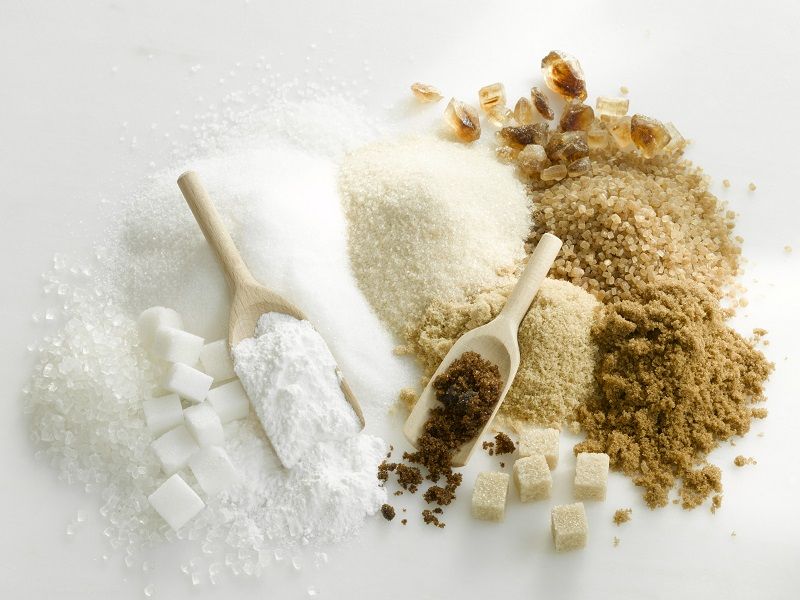
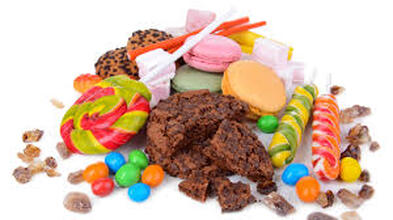
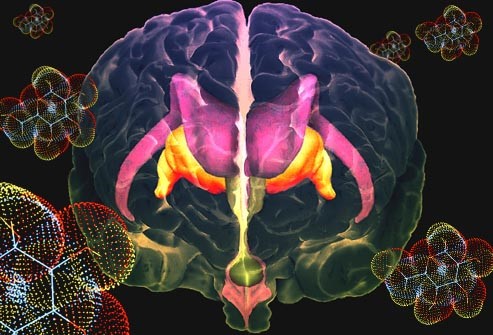

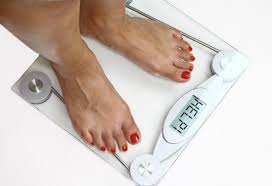
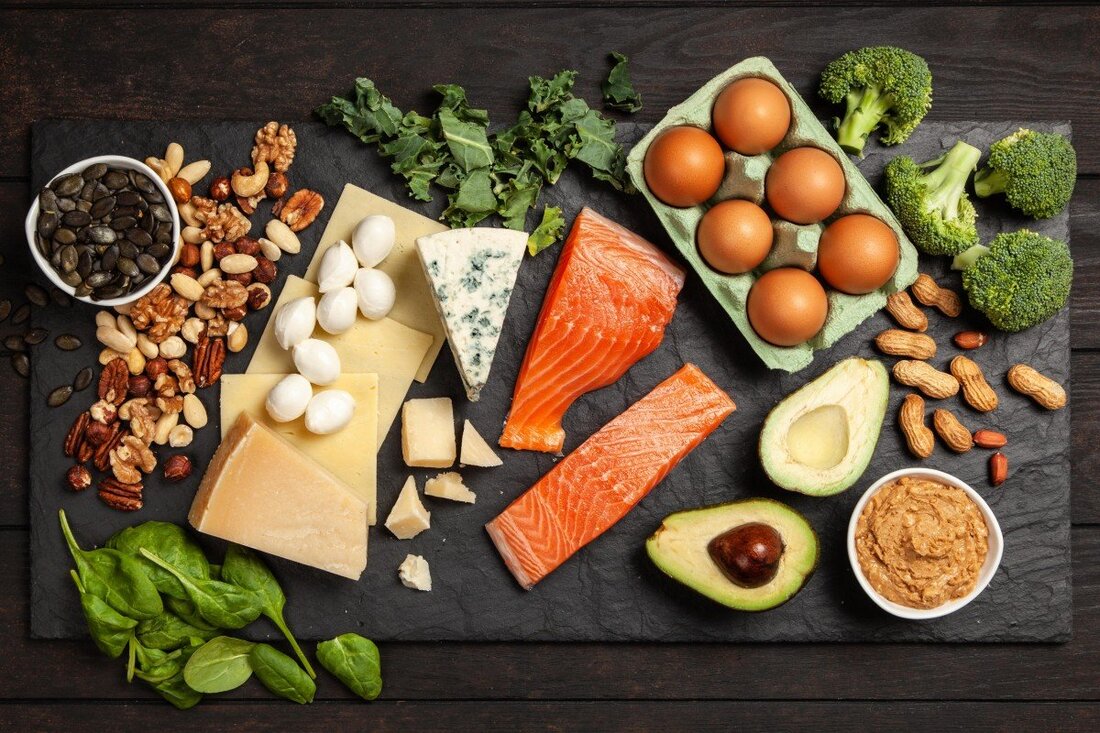
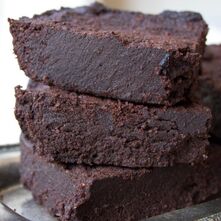

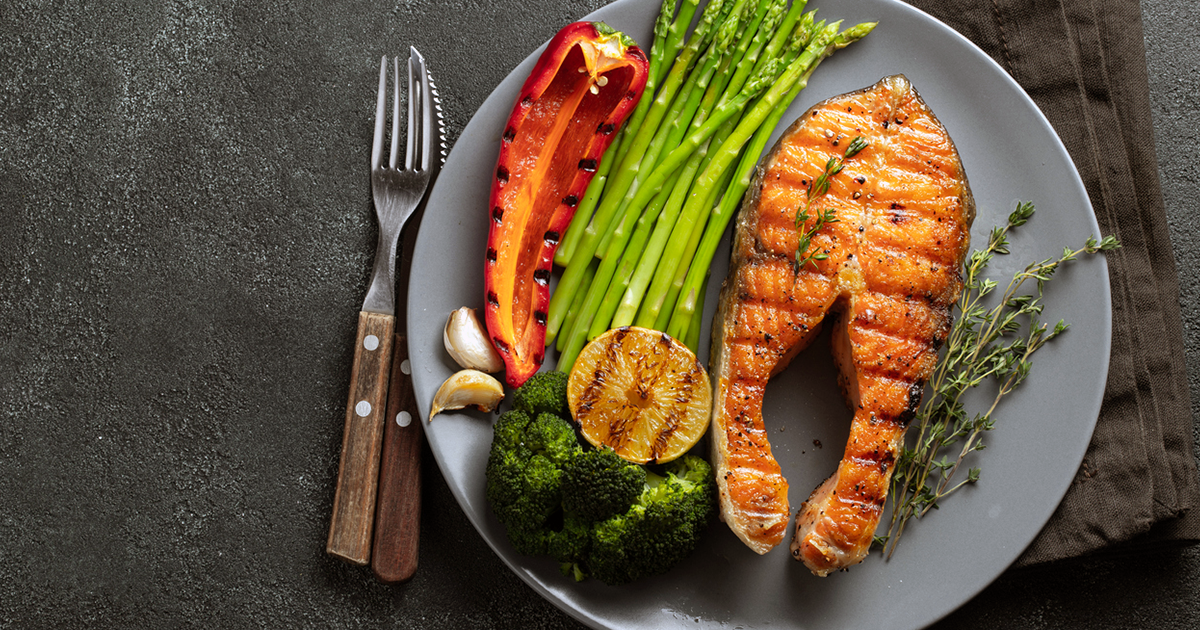
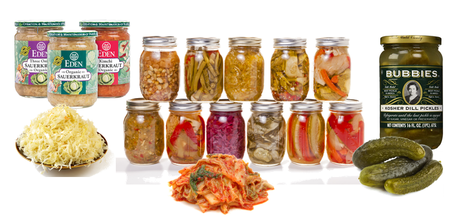
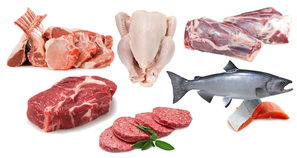
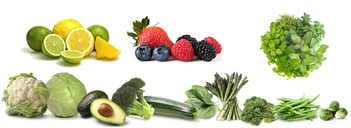


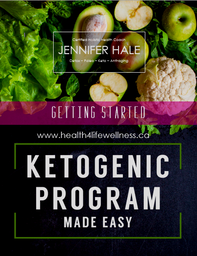

 RSS Feed
RSS Feed